Stop killing us! Grupo Conexão G from Favela da Maré in Brazil
The first-ever LGBTI Culture and Citizenship Festival of the Favelas was held from September 6-8, in the midst of a police operation that lasted almost 20 hours and left two people dead, leading the community of Maré to cry out, “Deixem de nos matar!” [“Stop killing us!”]. Since 2006, Grupo Conexão G has been carrying […]
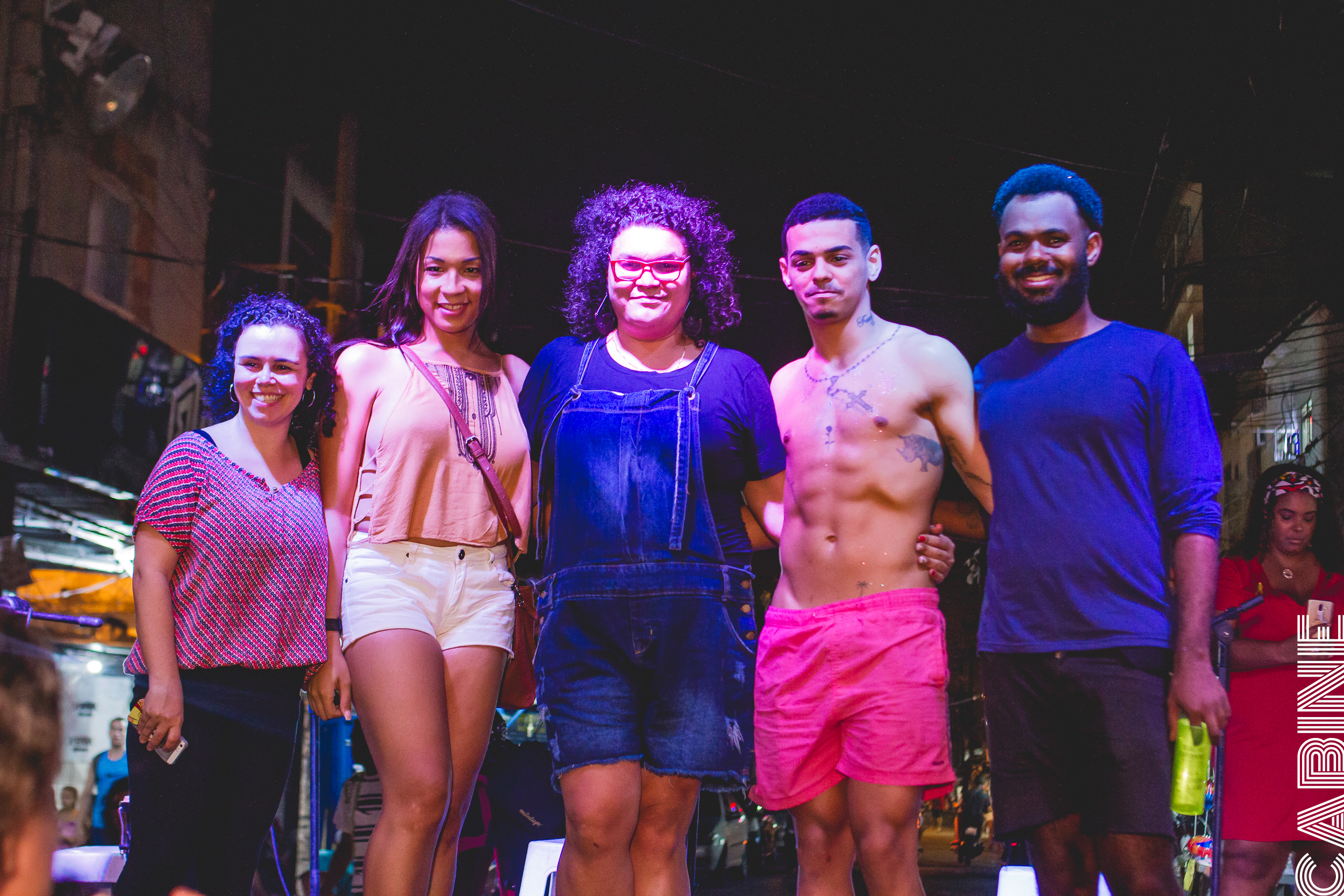
The first-ever LGBTI Culture and Citizenship Festival of the Favelas was held from September 6-8, in the midst of a police operation that lasted almost 20 hours and left two people dead, leading the community of Maré to cry out, “Deixem de nos matar!” [“Stop killing us!”].
Since 2006, Grupo Conexão G has been carrying out vital work in Complexo da Maré, a conglomerate of 19 favelas located in Rio de Janeiro among the city’s main access roads and close to the international airport. In 2010, when the last census was taken by the federal government, Maré had about 130,000 inhabitants.
Maré is one of the most dangerous favelas in Brazil. Completely controlled by drug traffickers, Maré is constantly in a state of warfare among rival gang factions and the police. This logic and mindset of war is perpetuated by a drug-fighting discourse that criminalizes the entire favela population. In a scenario in which this population is systematically denied rights such as health, education, work and leisure, among others, the main relationship between these people and the state is one of violence.
Conexão G was the first organization in Brazil that began working directly and exclusively with the LGBTI population of the favela. Since its birth, the organization has carried out projects aimed at public safety, employability, health, education and culture for the Black LGBTI population. Intersectionality is a key guiding principle of the organization’s work.
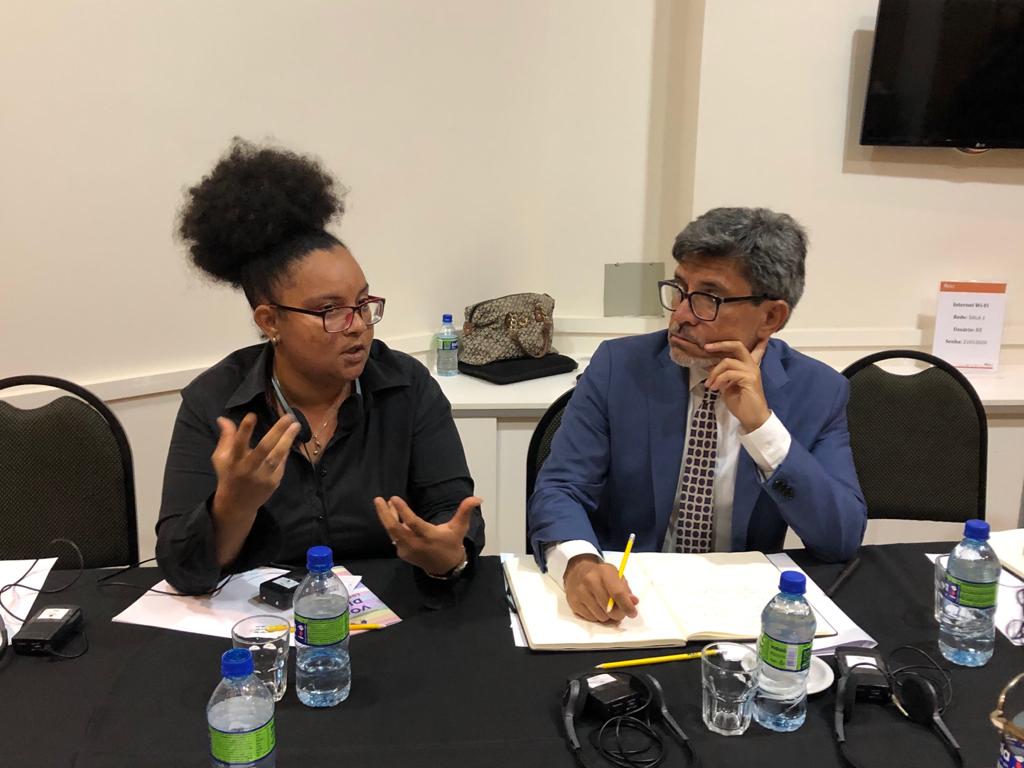
In a conversation with Race and Equality, Gilmara Cunha, a transgender woman who is the founder and director of Conexão G, said that when the organization came into existence in 2006, LGBTI people lived in a context of great violence and oppression at the hands of other favela inhabitants – a context that persists to this day:
“At that time, and even today, we were experiencing a lot of violence and oppression from other inhabitants. We could not participate in some spaces, because we were physically and verbally attacked. One of the most memorable moments was when a group of travestis [a Portuguese word describing a variety of feminine gender expressions] went to a place where they were playing samba music, and some people started throwing onions and sticks at us and we had to flee. From there, we thought: ‘something needs to be done to transform this reality and transform the politics of the LGBT movement,’ which was and still is a middle-class movement. At this moment we started coming up with an agenda that could actually attend to and include the favela population, because today’s policies are designed for the middle class and these policies do not reach us”, she said.
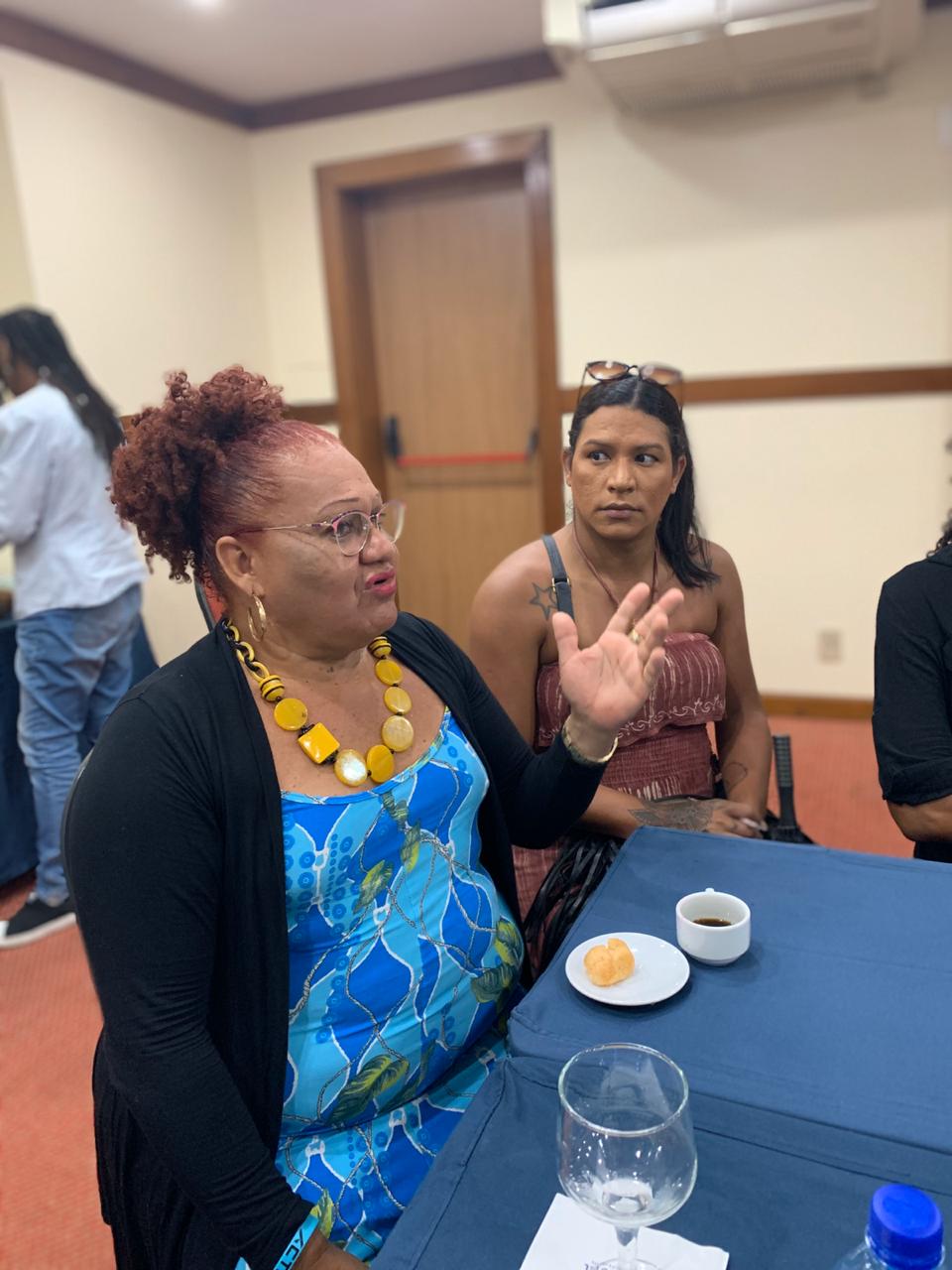



As an example, Gilmara cites the recent decision by the country’s Supreme Court to equate homophobia with the crime of racism:
“See, homophobia has been criminalized and equated with the crime of racism. But if we are in this area [the favela] and make a report, the police will not come here. If the police do come, that puts our lives at risk, because everyone knows each other and will know who made the report.”
In fact, in many cases, people that live in favelas are forbidden by traffickers to go to the police if their problems might lead to an investigation, in order to prevent the police from challenging traffickers’ control of their territory.
The 1st LGBT Culture and Citizenship Festival of the Favelas: Marked by Police Aggression
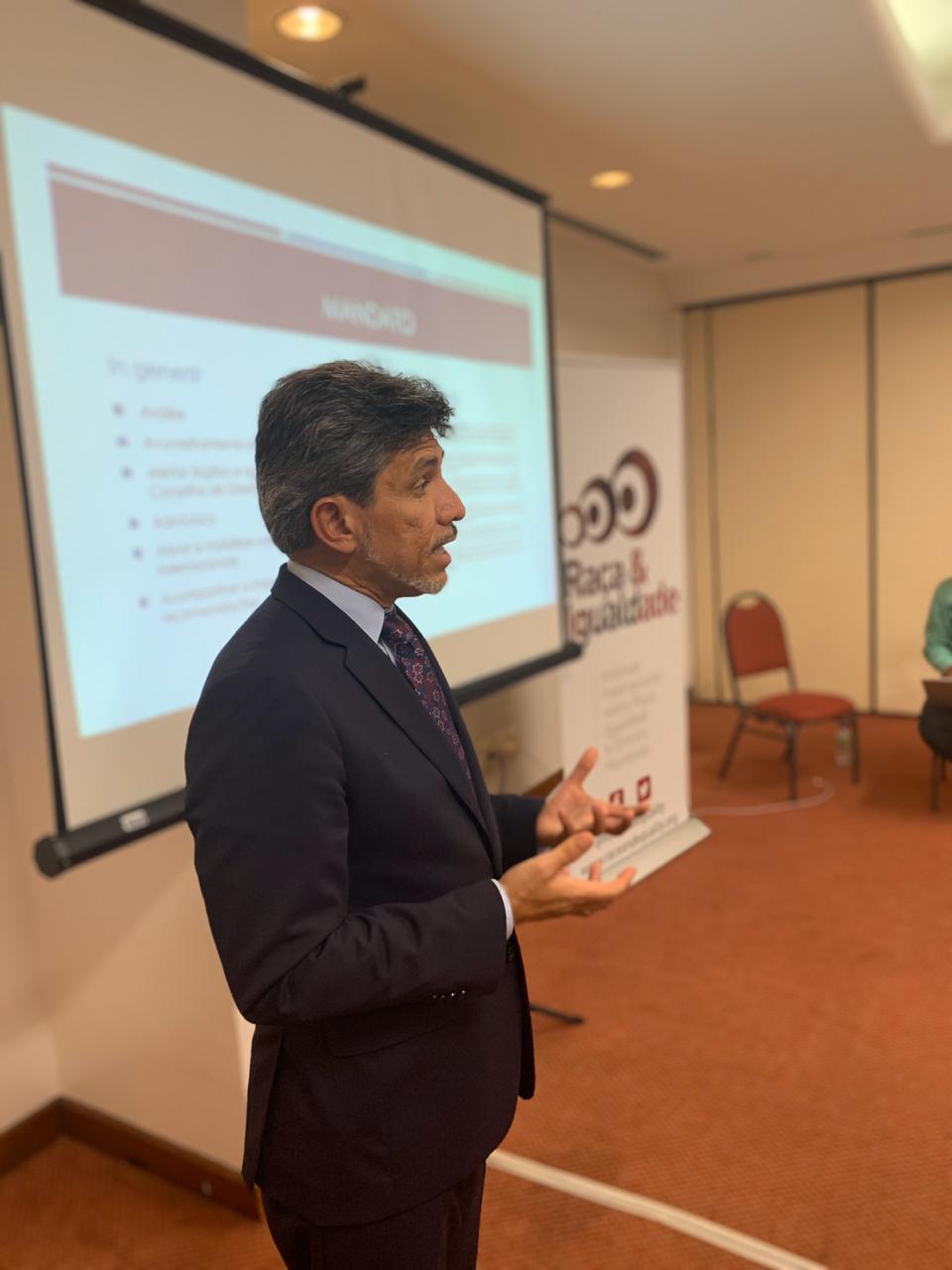

Since 2010, Conexão G has held the Favela da Maré LGBTI Parade every year. This year, besides the Parade, they also held the 1st LGBTI Culture and Citizenship Festival of the Favelas, an event with various components that combined art, culture, fashion, sustainability, politics and entrepreneurship. The activities were held from September 6 to 8, ending with the LGBTI Parade.
However, on the first day of the event, a police operation took place in Favela da Maré. The operation lasted about 20 hours and resulted in two people being killed.
Such police operations are one of the main issues facing Favela da Maré. The current government of Rio de Janeiro has adopted a policy within the favelas that can truly be described as “slaughter,” with police officers shooting indiscriminately from helicopters. As a result, from January to June of this year, 881 people were killed in police operations in Rio de Janeiro state – the highest number in the last 17 years.
The police operation affected the schedule of Conexão G’s event and endangered the attendees
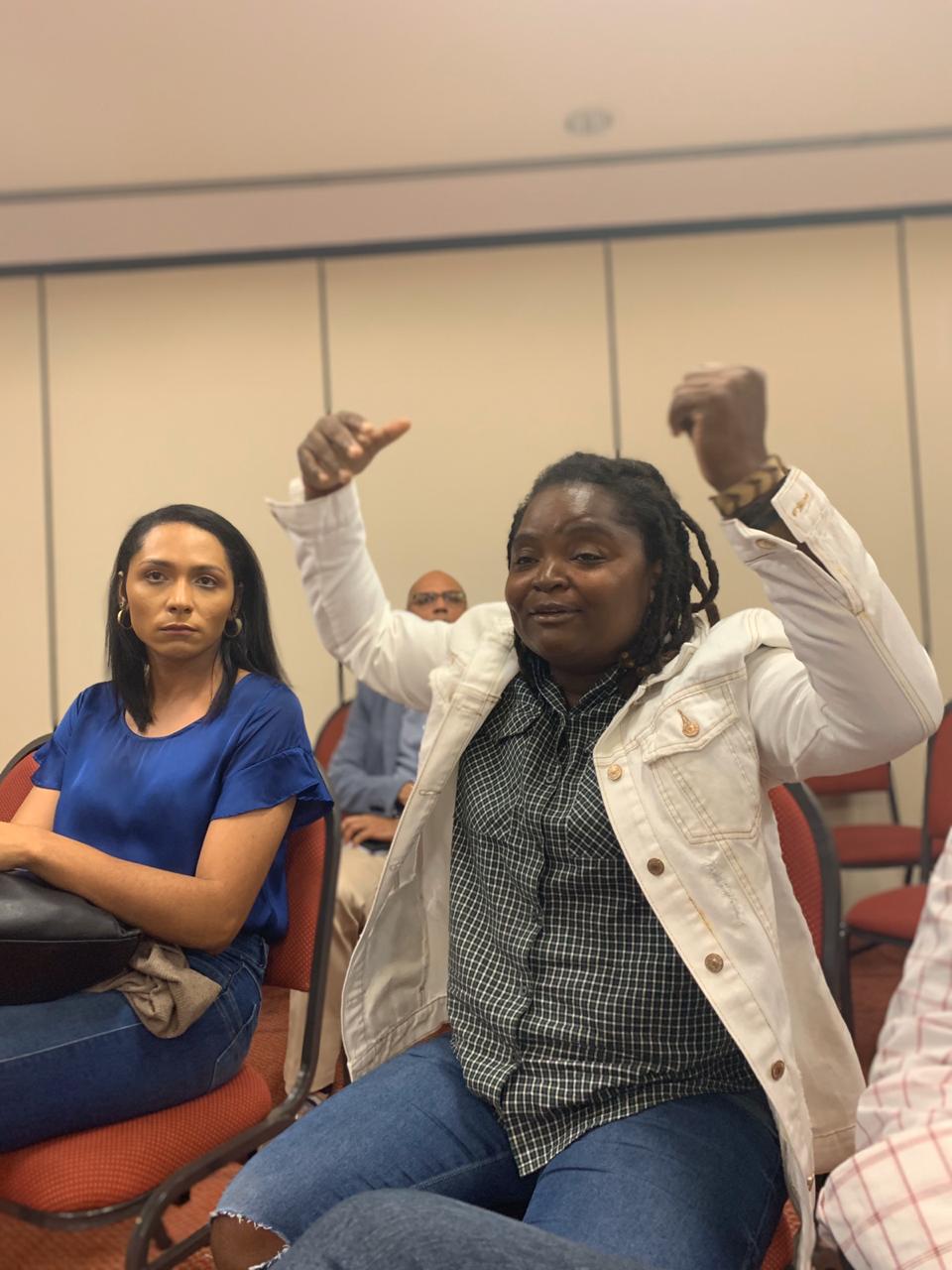

“It is a war that is not against drugs, but against the poor, black and favela population. For example: yesterday there were 2 people murdered, several houses were broken into. This affected our schedule during this week, especially on the first day. There was shooting all the time. We got stuck at the Maré Arts Center and couldn’t leave. This makes me wonder: what kind of state is this that does not consider this space as part of the city? The feeling is not only of fear, but also a feeling that nothing can be done. But we are there in the resistance,” said Gilmara.
Mariah Rafaela, another trans women that works for Conexão G and with the Instituto Transformar, was also present, and said:
“It was terrible. When we realized that the police were entering the favela and we started to hear the sound of gunshots, we were certainly very worried about the physical safety of the people who had come to attend the event. There were many shots and we had to cancel the activities. We closed the gate and we were trapped inside, waiting for the shots to end or to have a short moment to get out of where we were. It is very difficult to carry out this work in Maré, but we will continue to persist.”
For this reason, the Favela LGBTI Parade, held on September 8, was marked by demands against police violence. Gilmara Cunha proclaimed:
“This state kills us every day! Stop killing us! We are here claiming for lives! We lived for these days practically in total violence, where police entered our homes, murdered inhabitants, and we cannot allow that to happen! Maré is part of this city! We can’t accept it as if it was normal! Enough! Stop! Stop killing our poor, favela population! We are here to claim rights! Being here today is an act of resistance!”
Gilmara Cunha also reported that, given the Brazilian political scenario, this will be the last year that the Favela da Maré Parade is held. “For now, it’s the last parade. God only knows what the scenario will be like next year”, she said.
Race and Equality recognizes that the lives of the LGBTI favela’s population requires special attention and visibility and congratulates Conexão G for their courageous action in the face of the great context of violence in Brazil’s favelas.
We will continue to work for the documentation, visibility and denunciation of the human rights situation of the black and marginalized LGBTI population in Brazil, and we demand that the Brazilian State guarantee the right of this population and also guarantee the necessary security for Conexão G’s work in Favela da Maré.

